Are you ready for the good, the bad and the ugly? Here’s the bad news: the world is broken. The good? This lot can help us fix it. And now for the ugly: it’s going to get messy.
Luckily there are plenty of people who are happy to get stuck in. Having now mapped over 500 planet-changing projects, we see our role as providing a window to the work of these innovators.
On 13 March our first event Fixing the future allowed us to bring a diverse fellowship from the UK and as far as the Australian Outback to the CCCB in Barcelona, ‘City of the Possible’.
The speakers all had one thing in common: each one of them is working for a better tomorrow.
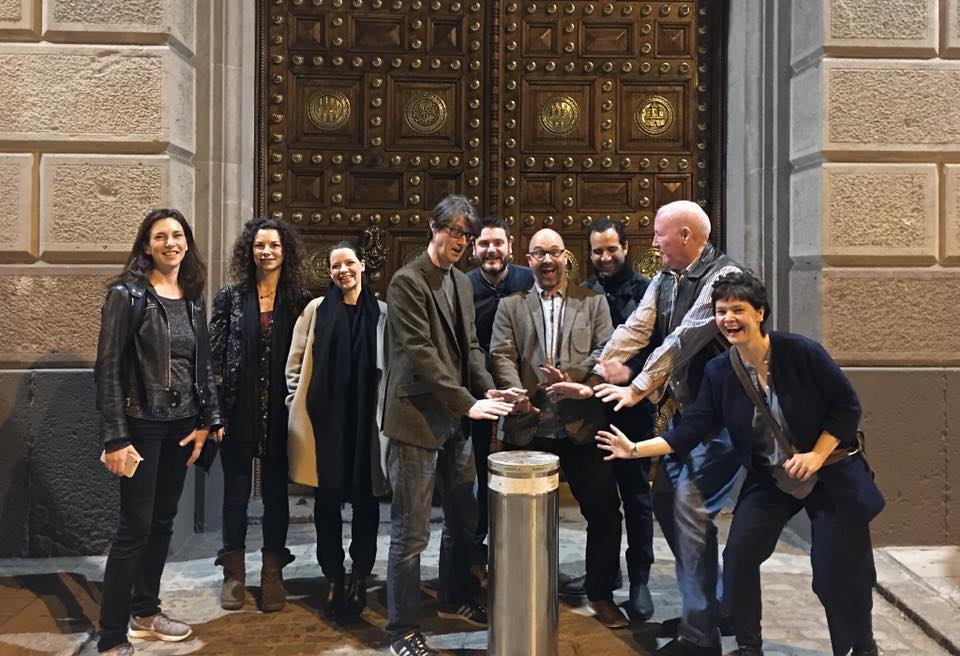
Opening the door to a more desirable future
You can watch all the talks on our YouTube channel and view the full slide show of photos at the end of this piece, but first enjoy a few highlights – including zombie analogies, ‘spies for good’ and challenging everything you thought you knew about cows. We’re still buzzing.
⚡ 1. You
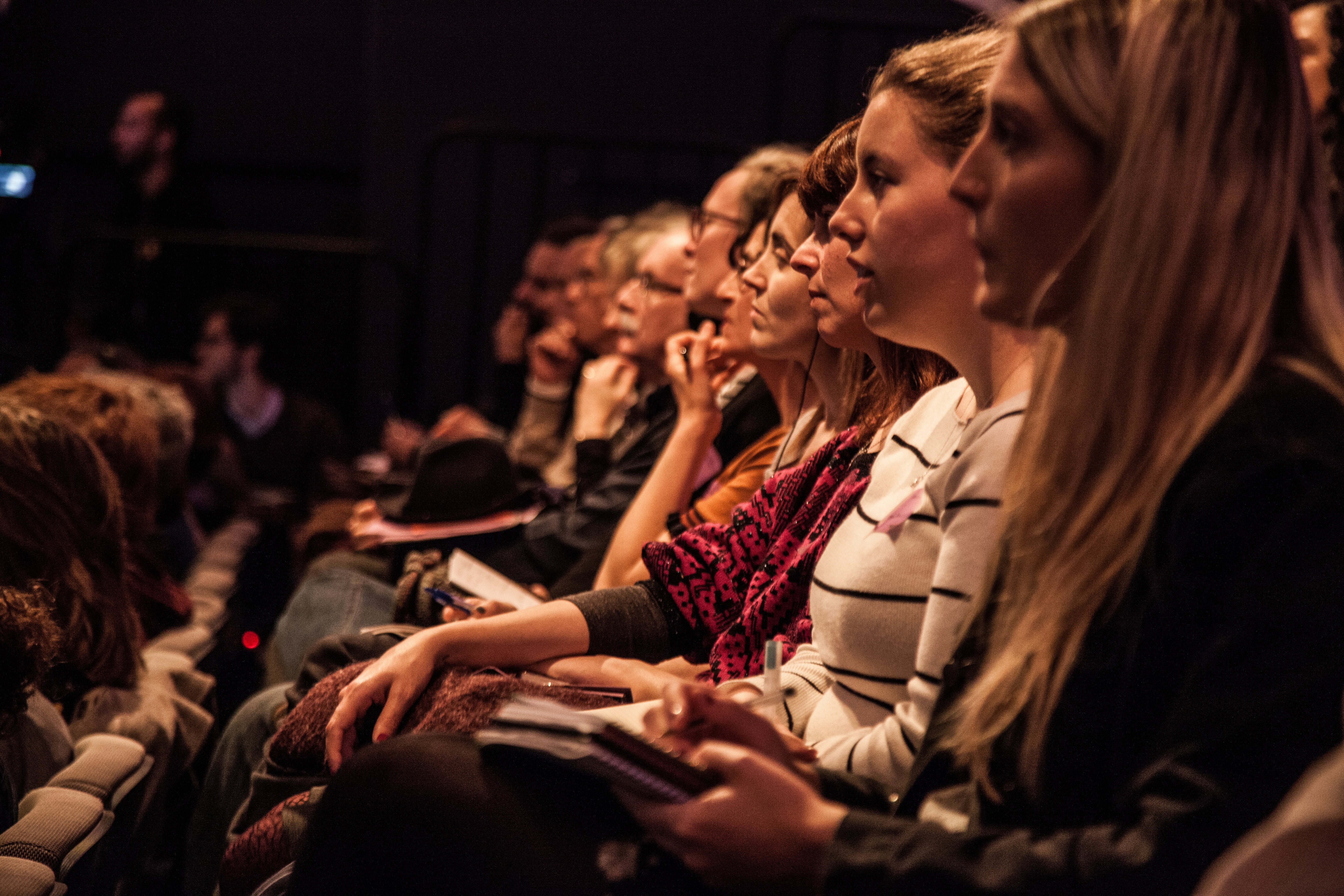
You too can fix the future
‘Fixing the future’ is not all about the diversity of the speakers, but the future-curious crowd too. 350 of you came, enthused, asked questions and were even inspired to form Atlas of the Future Meetups. As bestselling futurist Mark Stevenson put it in his introduction: “Don’t attack the system, build something better.”
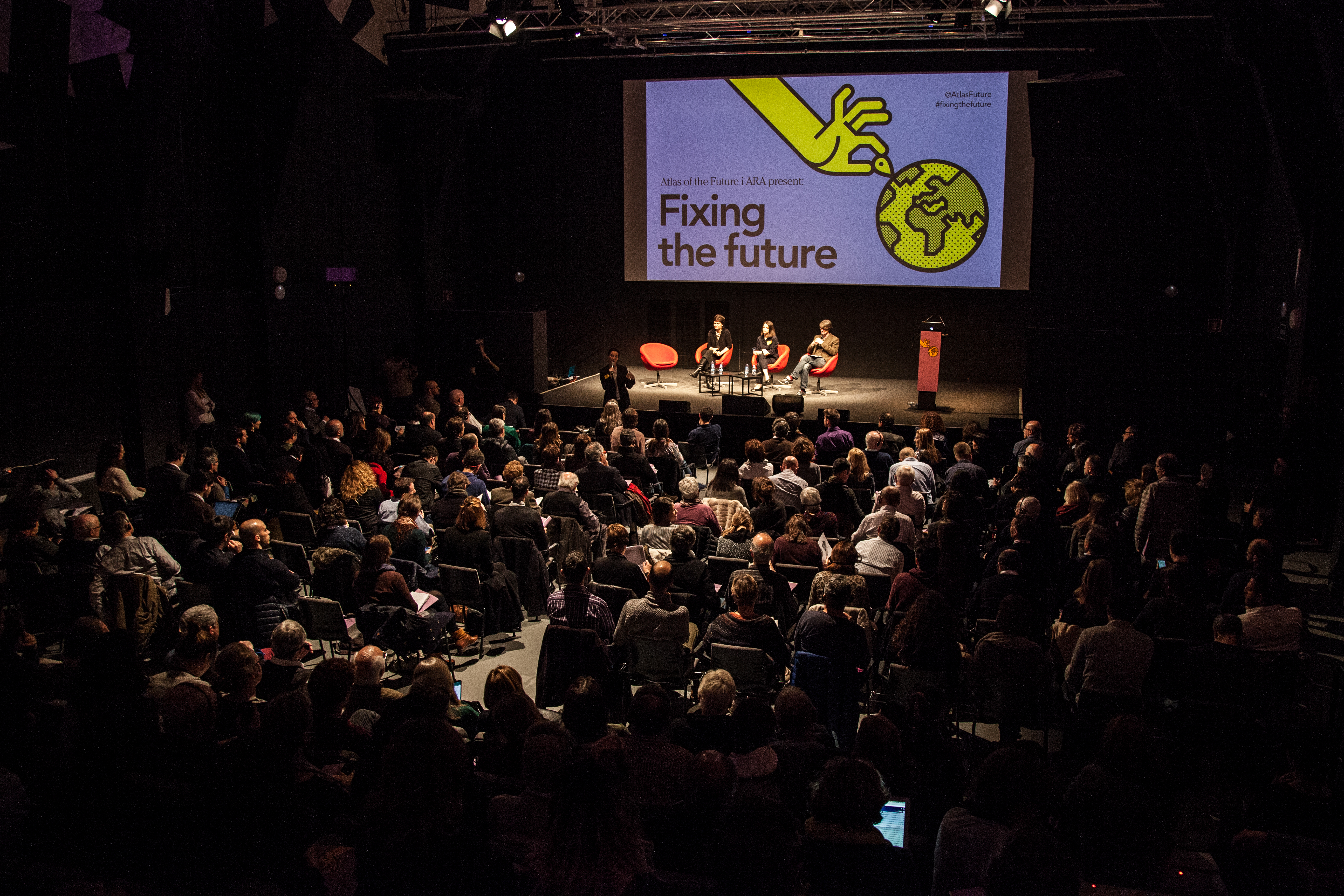
Thank you for your uplifting responses
Because of you and your smartphones, #fixingthefuture even trended on Twitter. (Hey, that’s no bad thing.)
⚡ 2. Playing the long game
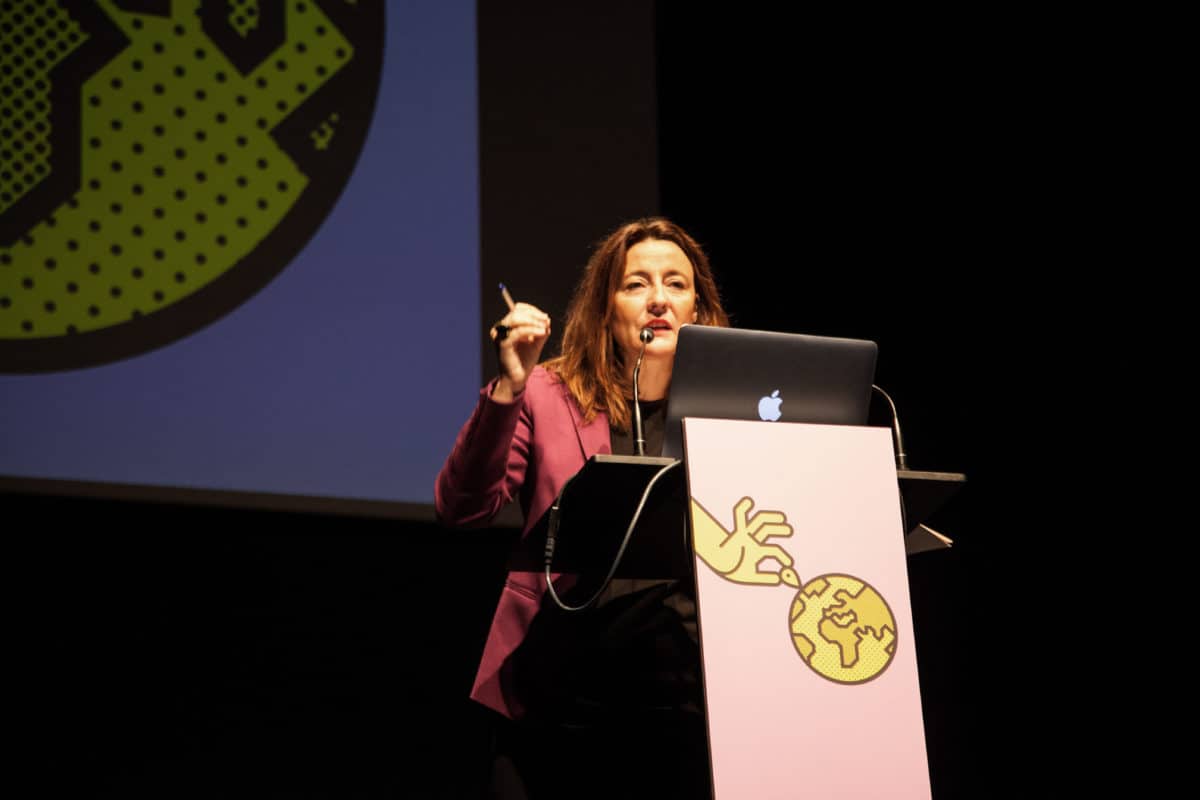
Mercè Conesa
We were honoured that Mercè Conesa, President of the Diputació de Barcelona, came to welcome all our future-fixers to the CCCB – and reminded us, as mayor of a medium-sized town, that it is vital to create long-term projects with long-term thinking. Otherwise “there is no urbanism and no cities”.
⚡ 3. Doughnuts for breakfast in Spain
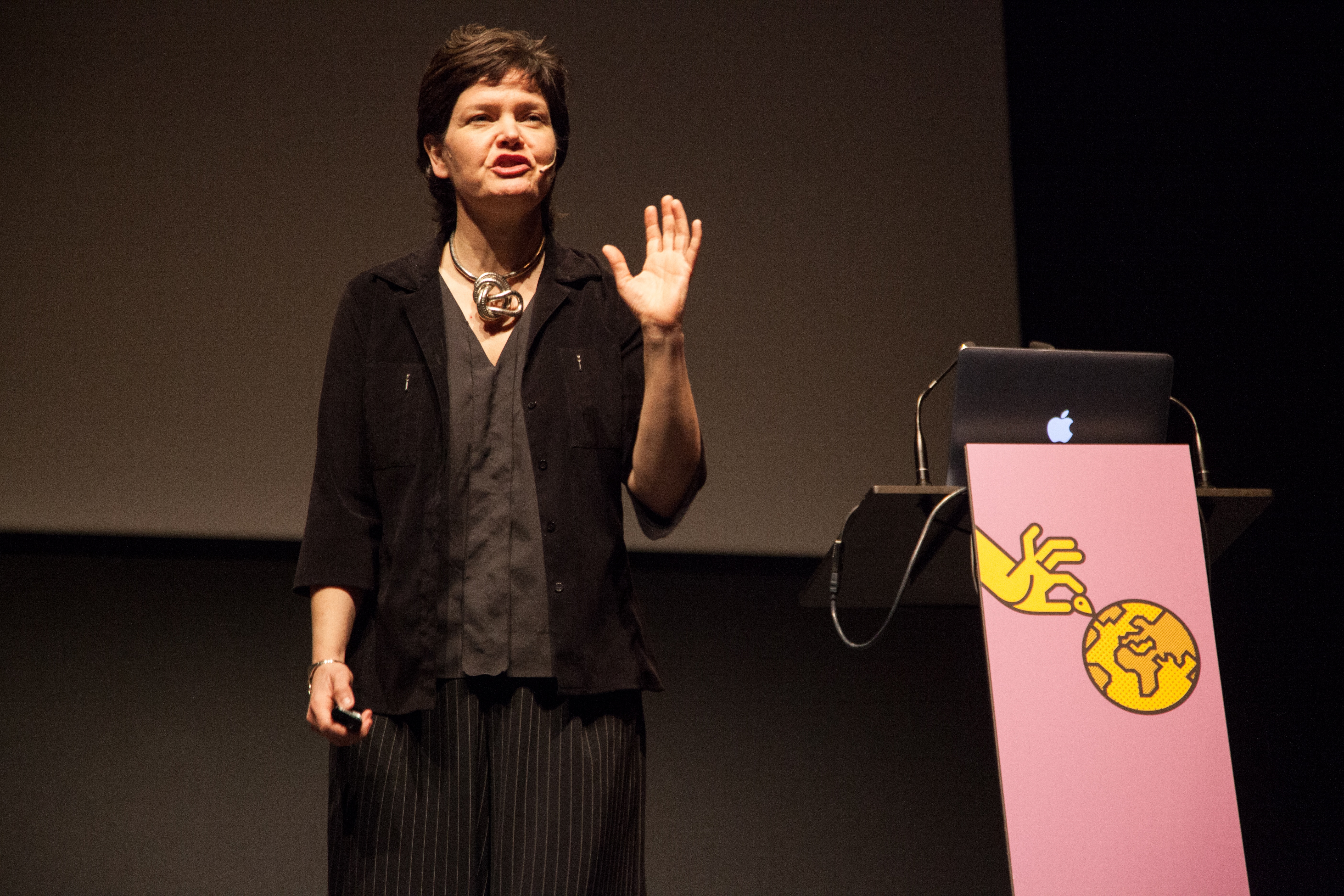
Kate wants to get everybody out of the ‘doughnut’s hole’
Can we fix todays global challenges? In the first part of the day, renegade economist Kate Raworth gave us a real sense of what ‘Fixing the future’ is all about – connecting the themes of food, economy, energy, climate change and water scarcity, and providing a massive injection of energy into our thinking: “The new currency for the future should be energy and social wellness, rather than money.”
Kate wants to radically reframe the way we look at economics and redesign our systems by providing “a compass for meeting the needs of all within the needs of the planet”.
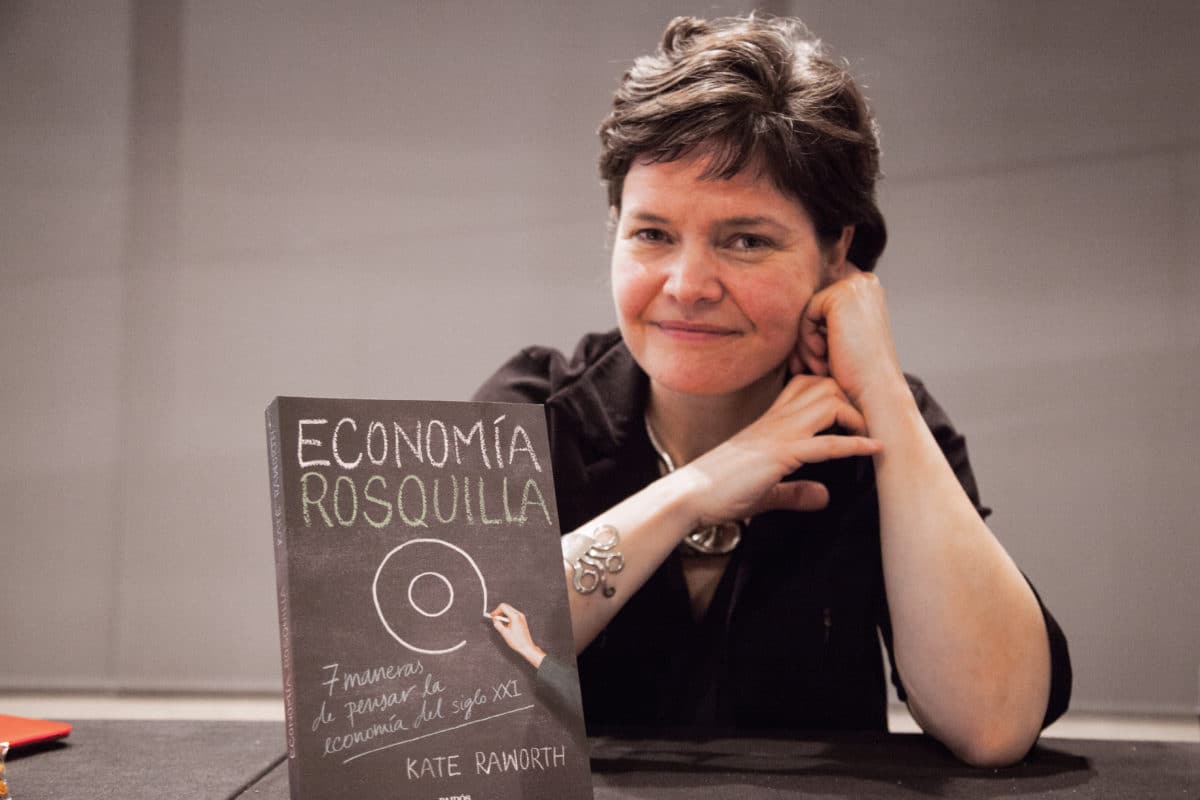
Rosquilla has a good ring to it
Pastry-related fact: now launched in Spain, Kate’s book ‘Doughnut Economics’ is locally known as ‘Economia Rosquilla‘ as Bimbo has patented the word ‘doughnut‘ in the country. (Yes, really.) Before you ask, churros won’t work as the shape is all-important.
⚡ 4. Close encounters of the zombie kind
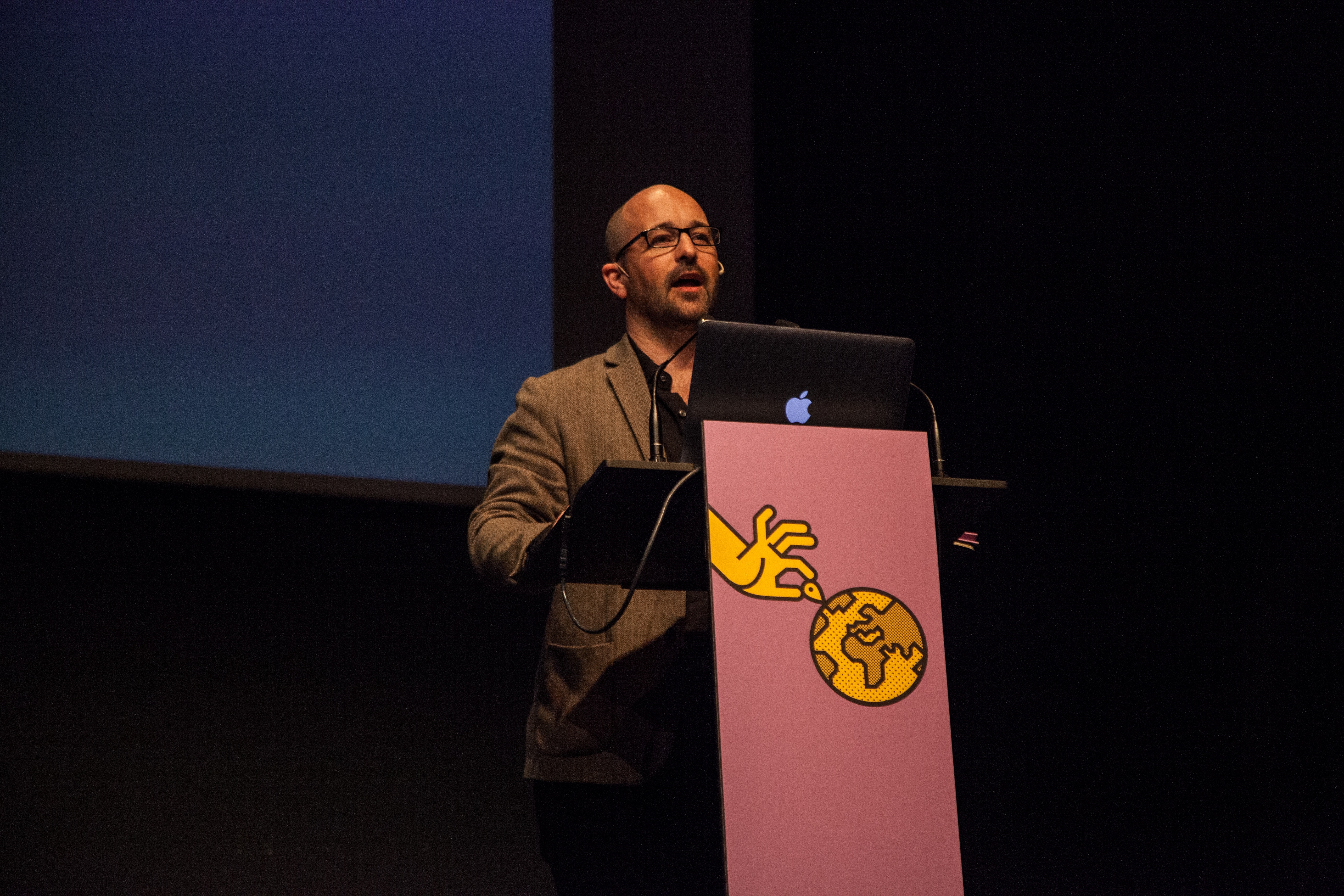
The King of ‘Insultancy’
At Atlas of the Future we are all about the joy. Who doesn’t love the exponential growth of technology like solar being compared to the speed of a zombie apocalypse? Thank you sustainability guru Ed Gillespie.
⚡ 5. Want to be a spy?
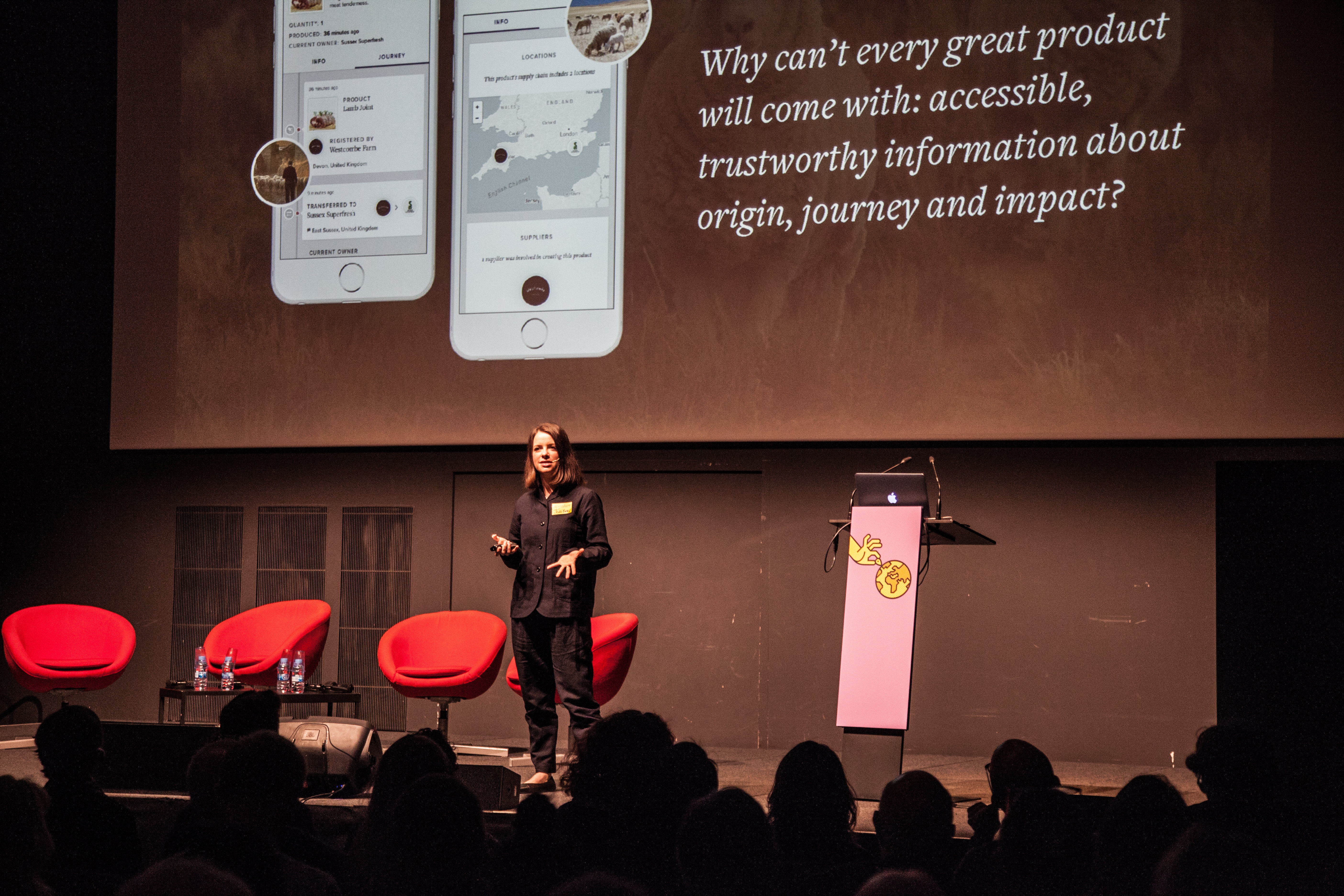
You can trust in Jessi
Jessi Baker’s angle on 21st century trust through using the blockchain for a global network of ‘shared truths’ encouraged a lot of questions. The founder of Provenance even broke down the blockchain for us – something many are keen to understand better.
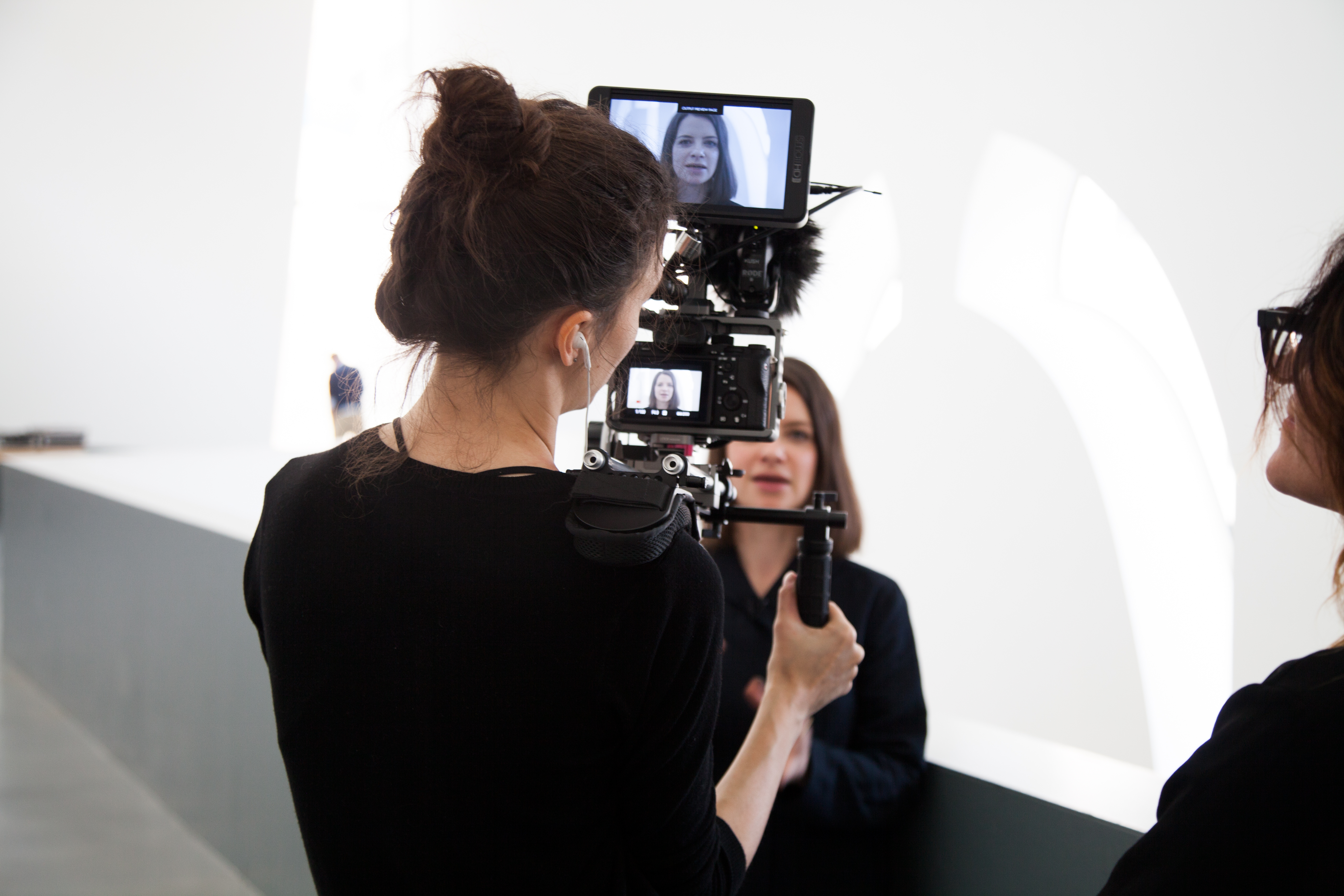
Jessi breaks it down block by block
Jessi also encouraged the audience to think about how to become ‘spies for good’ – as the blockchain could also play a role in demonstrating which supply chains are not trustworthy and what companies are doing a bad job.
⚡ 6. Bring on the cows!
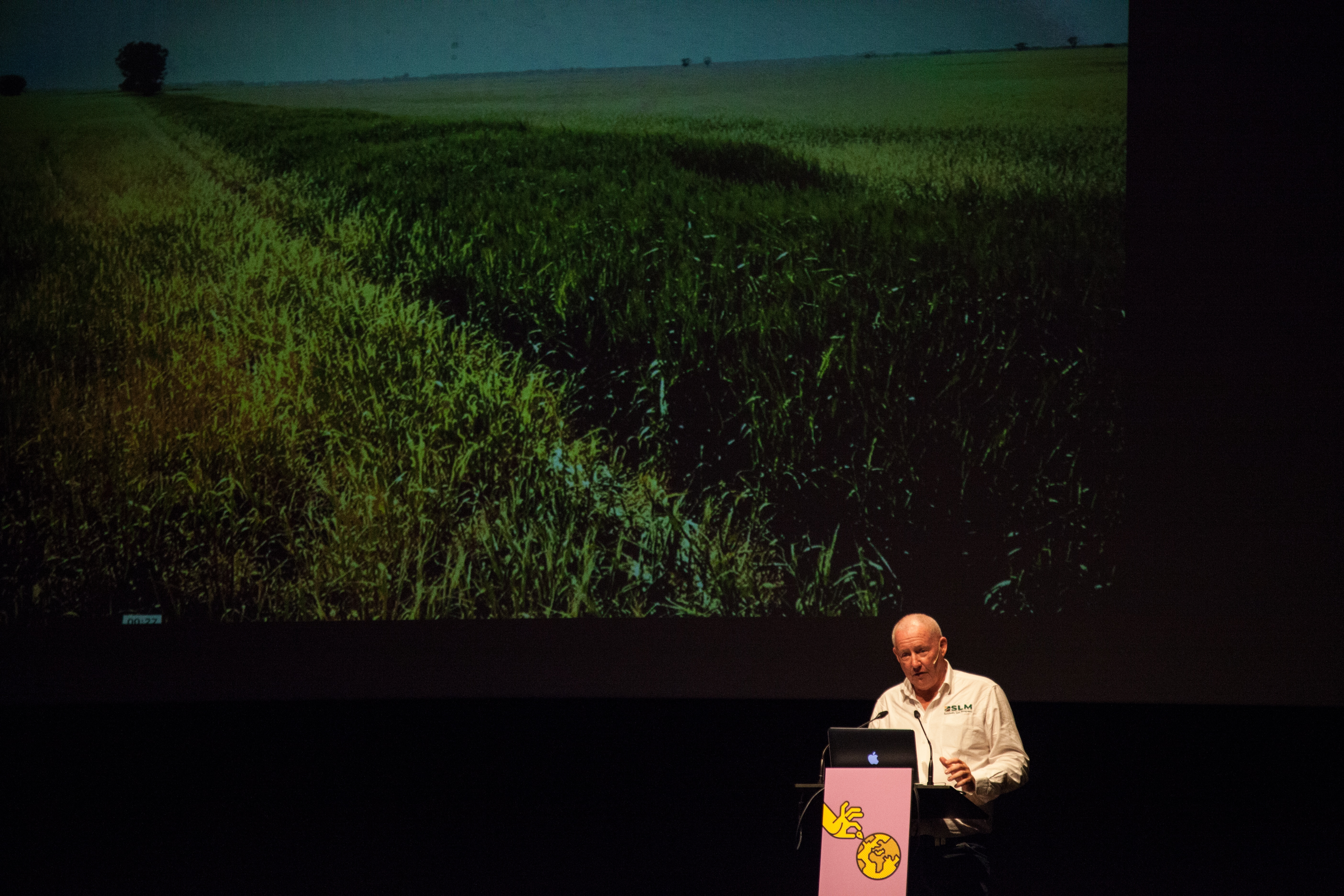
Challenging the ‘beef myth’
Not all solutions discussed were about software, technologies or moonshot initiatives. Cunning cattle rancher Tony Lovell came all the way from Australia to bring everyone right back down to earth. The genial cowboy challenged us all to stretch our imaginations when we think about how properly managed livestock can play a part not just in feeding the planet, but in mitigating climate change and restoring nature’s cycles.
You all felt the love for Lovell.
⚡ 7. What’s the collective noun for futurists?
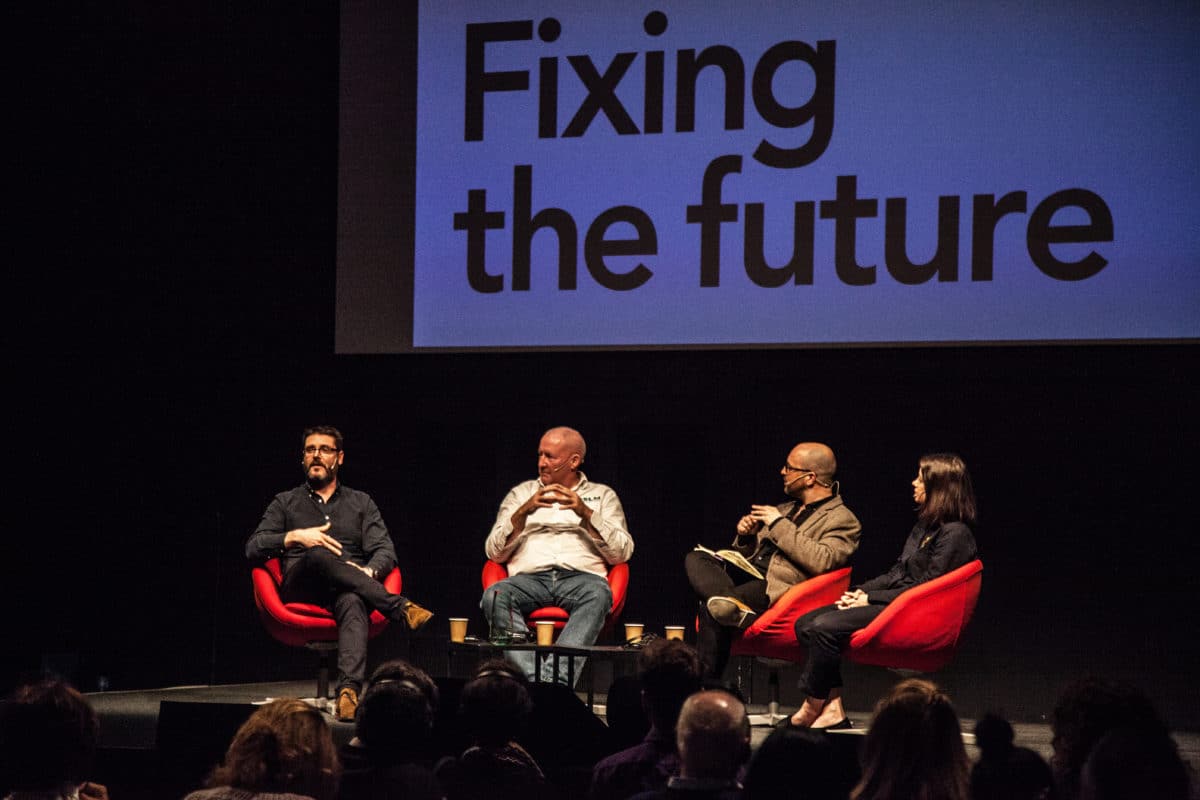
An anticipation? A prediction?
Structured so there was not one mediator throughout, the event’s four sections were titled: ‘Fixing our economy: why trust matters’, ‘Fixing water and energy: for all and owned by all’, ‘Fixing climate change: an opportunity for innovation’ and ‘Fixing food: nourishing the planet’.
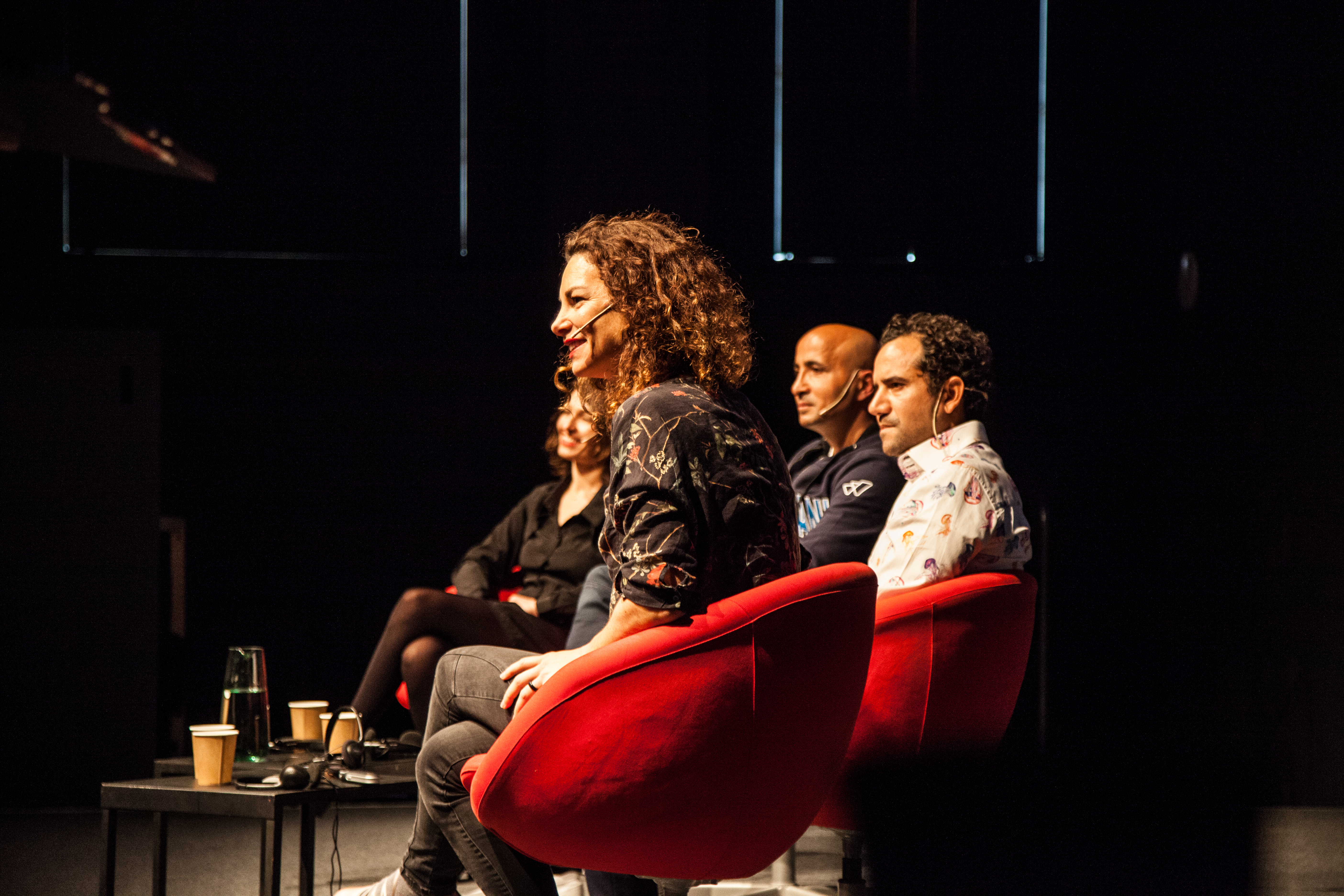
Gaia Vince moderates the ‘Fixing water and energy’ panel
You probed the speakers and they were challenged and inspired.
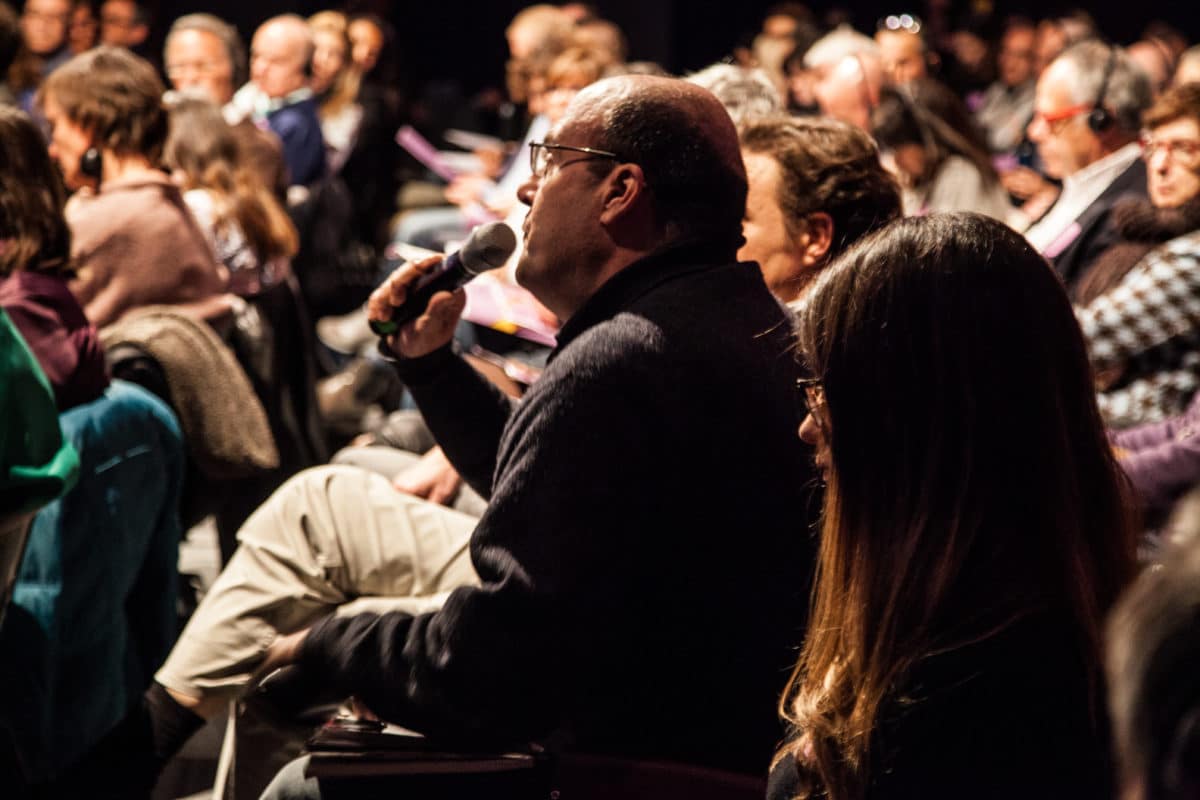
No mic drop
⚡ 8. Small is the new big
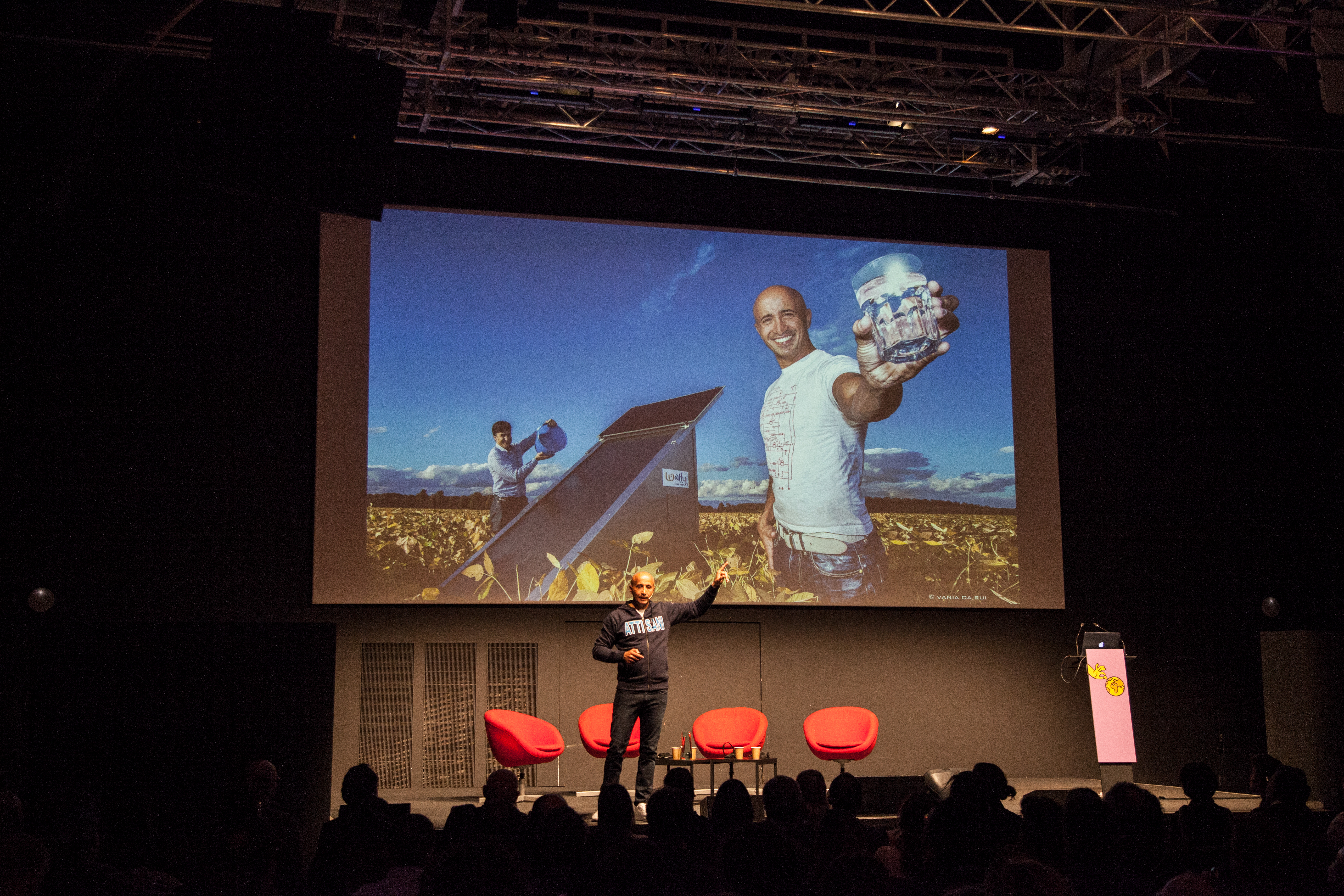
When life imitates art
After supercomputer creator Marco A. Attisani pointed out that we are living next to the biggest nuclear power station ever invented (the sun), he showed us some rather juicy looking energy and water systems for near future cities.
Marco’s impassioned utopian vision of the future introduced the ‘Energynet’ – a distributed model of millions of small power-generating system. “The problem is not changing the rules of the game, it’s changing the way we make money.”

“It was this big”
Repowering’s renewables dynamo Agamemnon Otero brought small scale energy solutions from Brixton to Barcelona to show how people power the future: “Until we start thinking about changing ‘me’ to ‘we’ nothing changes. To fix the future we should build a human network, a social blockchain.”
Fresh from swimming in the Med, he took to the stage to break down how it’s not about him, but about people and diversity. You change your environment and your neighbourhood: communities (and kids) can design their own futures.
⚡ 9. The power of women
The great #atlaswomen power at the backstage #fixingthefuture @CathyRunciman @lisagoldapple @AtlasFuture #urock pic.twitter.com/snAgU6mHpT
— Areti Markopoulou (@AretiMark) March 13, 2018
This event was organised by three women, had powerful women on the panels and this didn’t go unnoticed. We like that you liked that. (Thank you Areti, you also rock!)
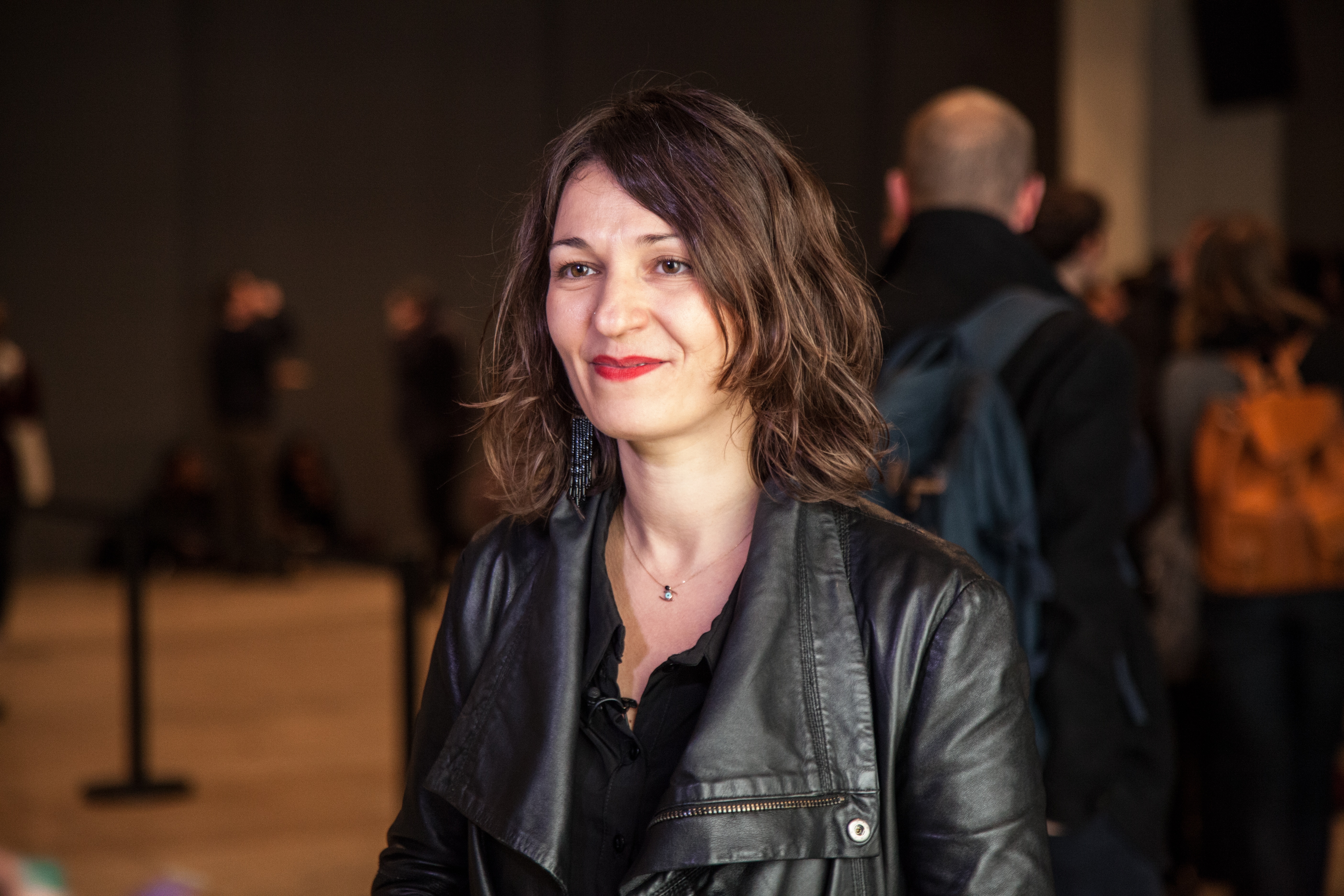
Barcelona-based Academic Director of IAAC
City reinventor Areti Markopoulou gave everybody food for thought with her four key visions of the built space – design with (not for) the people, build to produce resources, a home for everybody and small is the new big. Keep an eye out for her FutureHero interview soon.
⚡ 10. Are you a fixer?

Gaia Vince and Agamemnon Otero’s excellent blouses
We have always planned to create another level of mapping to connect people across the world who would benefit from each other’s ideas and projects.
Many years ago, science and environmental reporter Gaia Vince had based an interview piece on a paper that Kate Raworth had written, yet they met here in Barcelona for the first time.
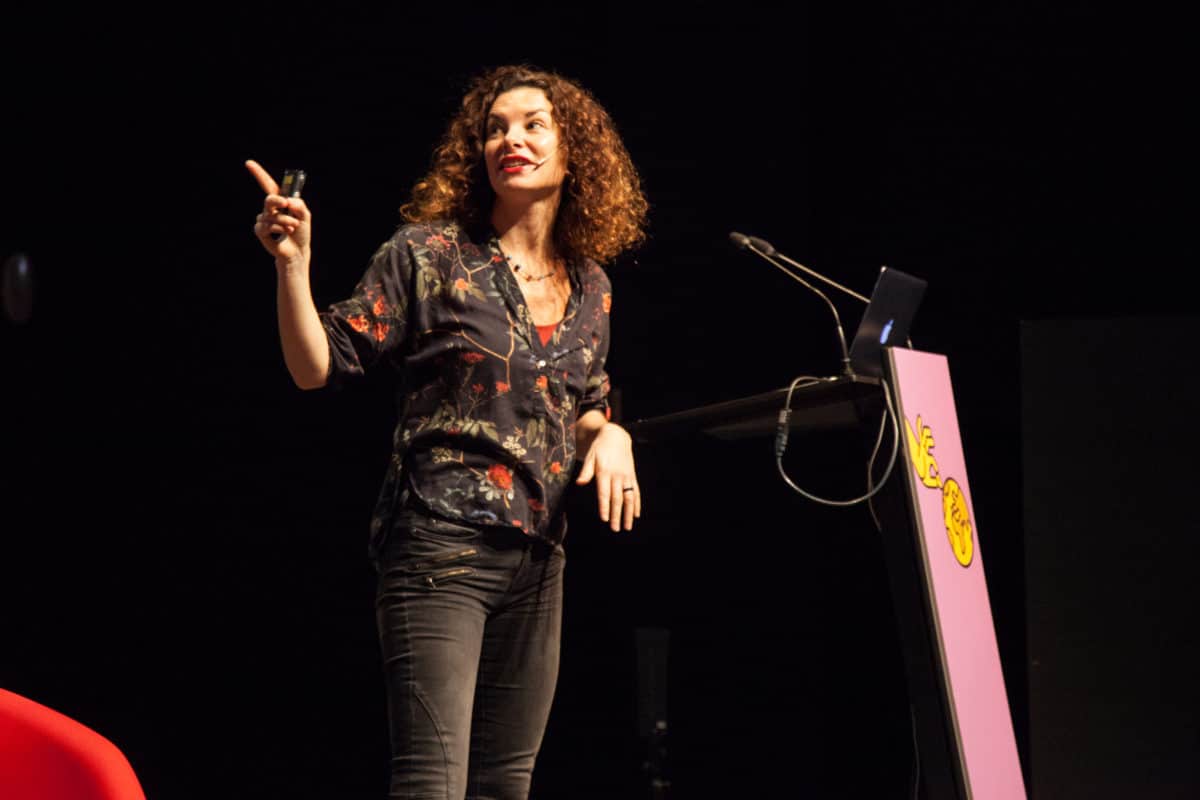
Gaia showcased some of the solutions she saw to water scarcity in far-flung corners of the world
We also enjoyed matchmaking Tony Lovell with Growing Underground’s hydroponic hero Richard Ballard, who thrilled everyone with a virtual-tour of his award-winning underground farm.

Easy peas-y connections
Since the event you have been recommending FutureHeroes who have most inspired you and you would like to see profiled or speaking at our next event. Keep sending us your suggestions.
⚡ 11. The team
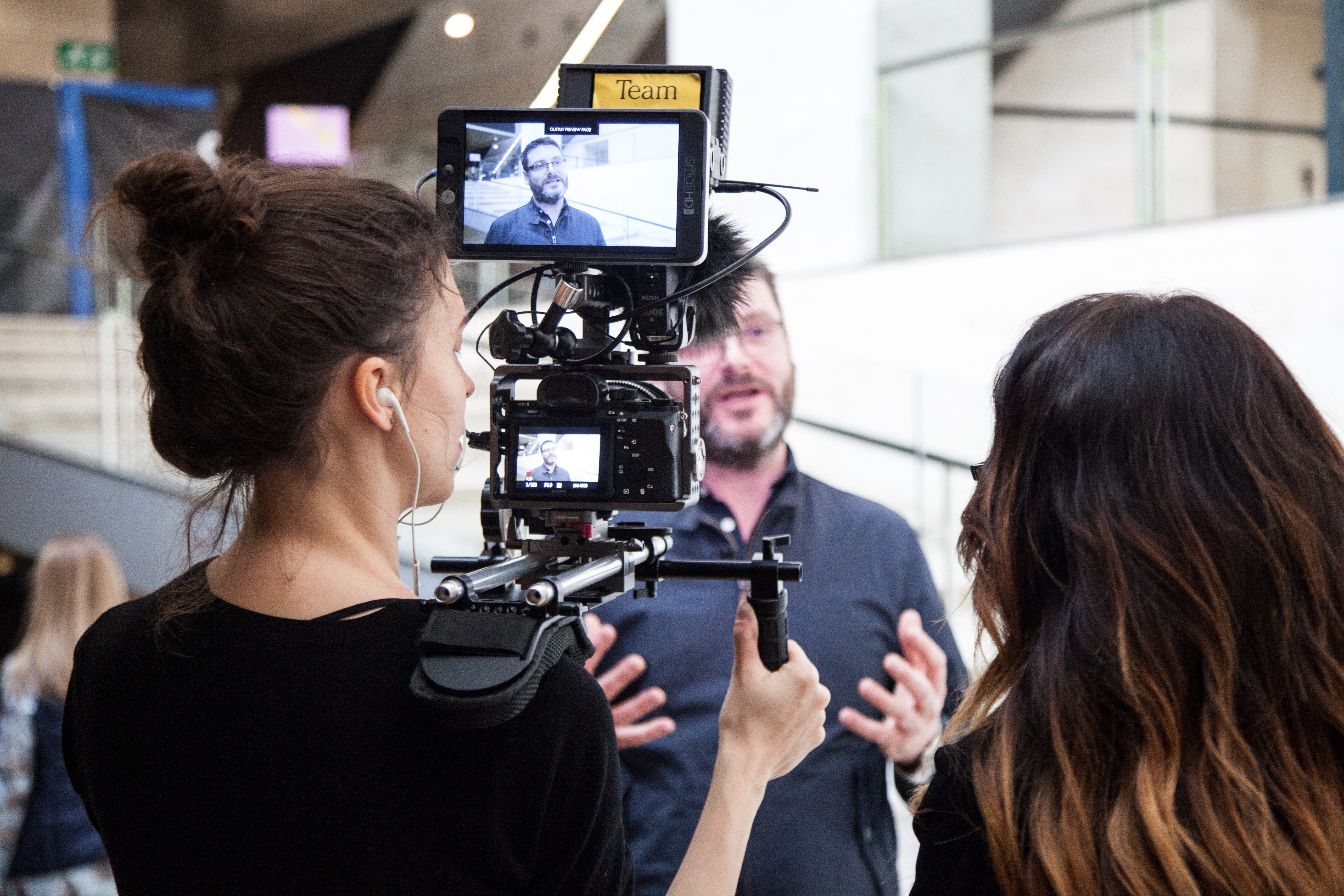
Richard Ballard AKA the ‘peashoot whisperer’
From the CCCB team to the friends and family who helped out on the day, we couldn’t have asked for a better crew on our first AtlasEvent. You all came together with the collective purpose of making this something to remember.
An exponential thank you to you all for your positive vibes. At one point it appeared as if a sunbeam of optimism was lighting our on-camera interviews.
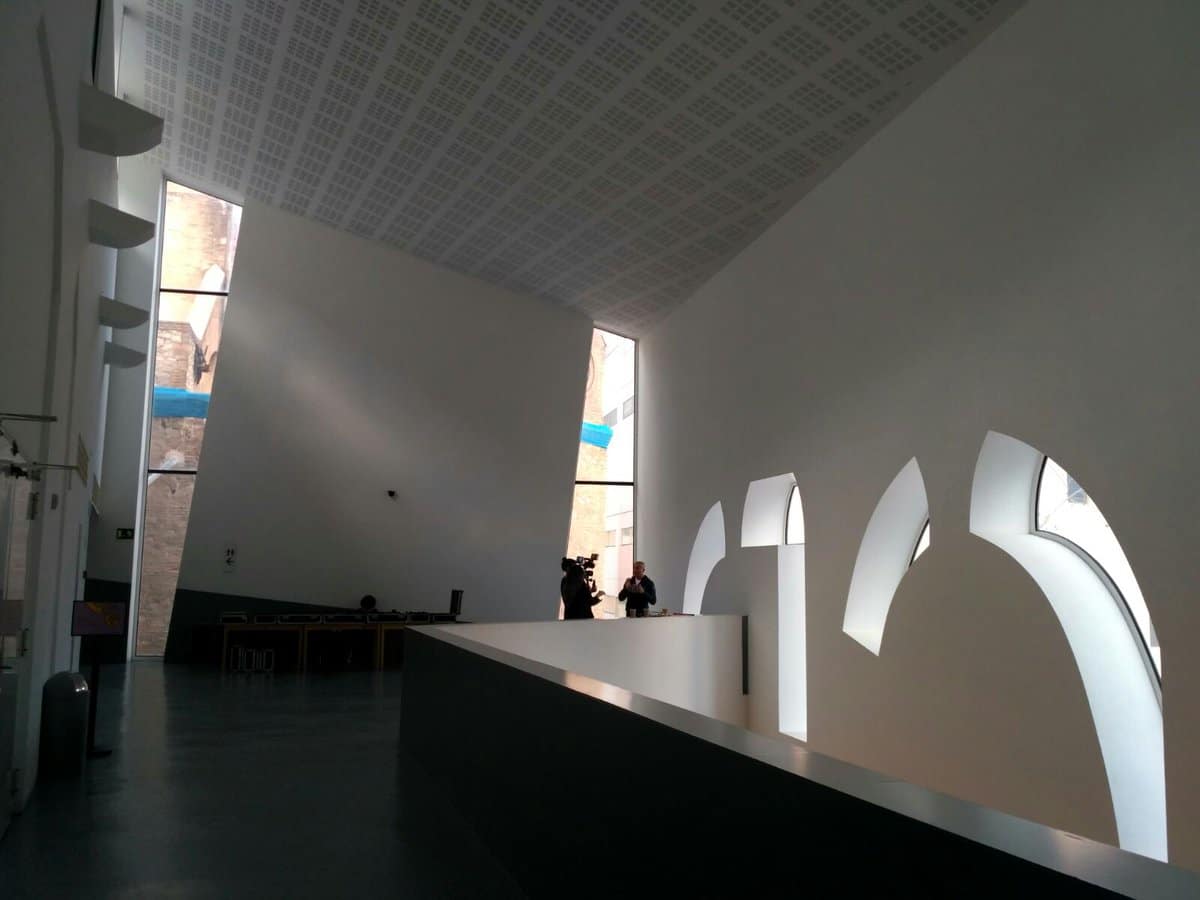
⚡ 12. The last word
… goes to pragmatic optimist Mark Stevenson, who opened the day. This is what he thinks of cynical future pessimism.

The speakers fell in love with Barcelona
Watch ► All the talks are available to view on the Atlas of the Future YouTube channel.
To those of you who have asked, we are already planning more AtlasEvents. As a small team, your feedback is important to us. Comment below and mail us here with your suggestions and ideas – and keep up to date with future events by signing up to AtlasNews for some weekly joy.
Photos: Lisa von Saalfeld. Thank you also to quote-noter Andrew Staffell.
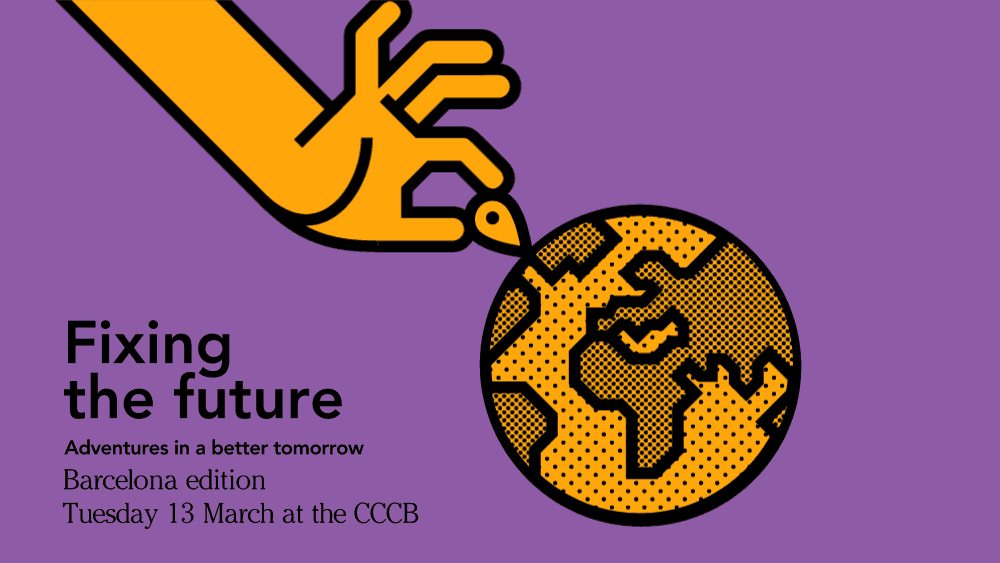
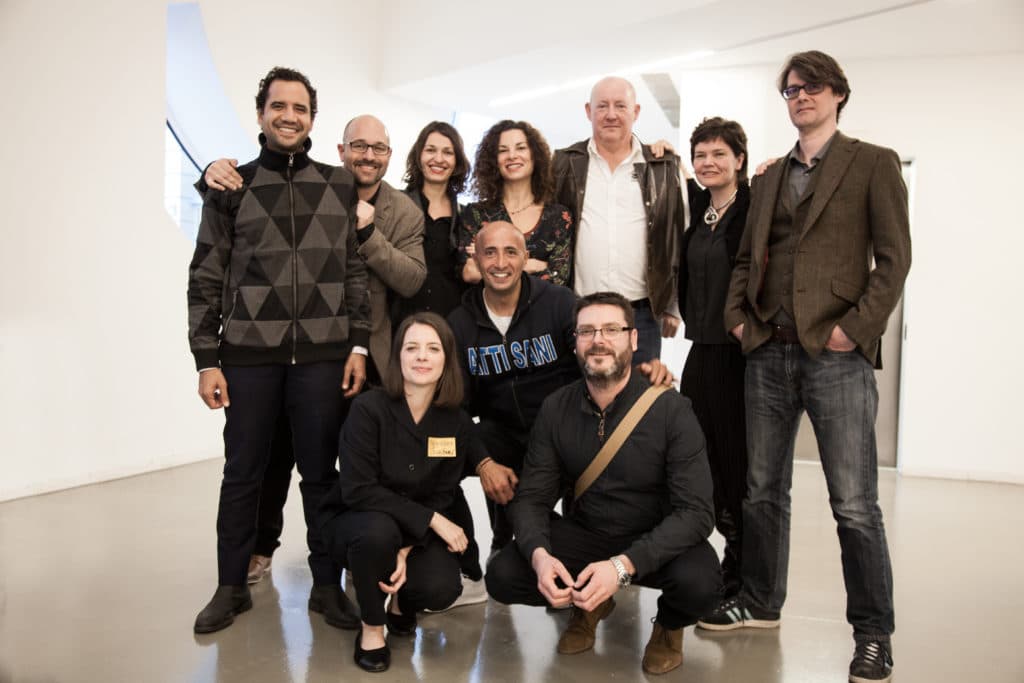

Amazing event and an honour to share such great community based initiatives and innovations. The mix and dynamism of the audience as much as the speakers says it all – all age groups, disciplines, viewpoints, together to make things better and take society forwards.